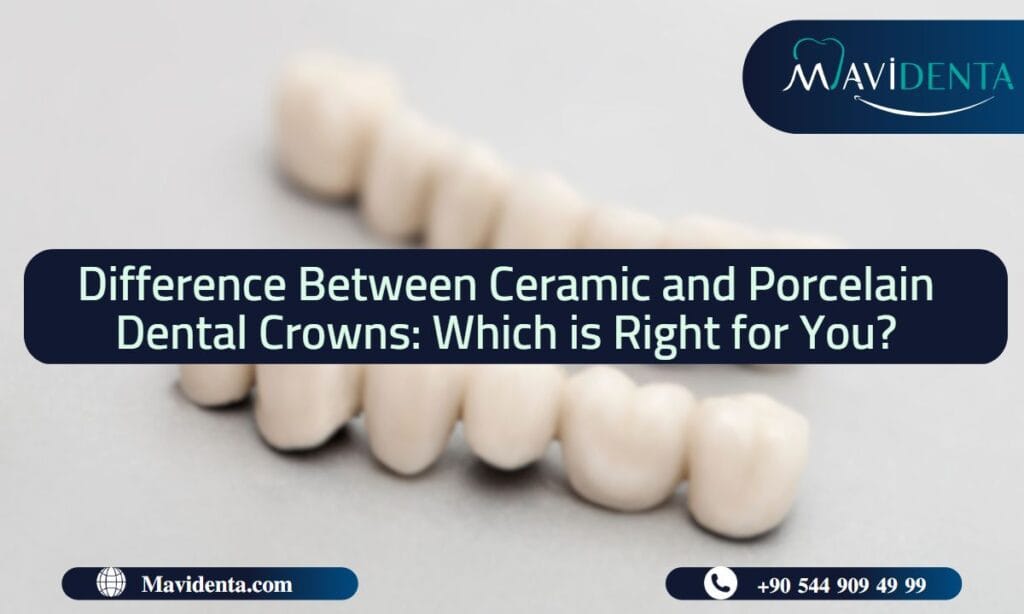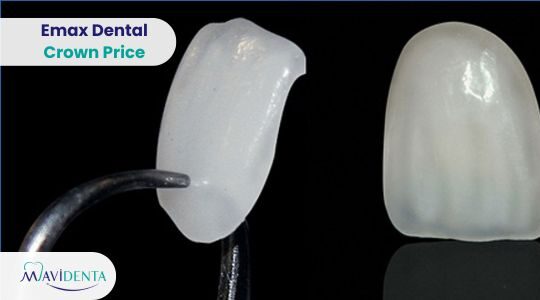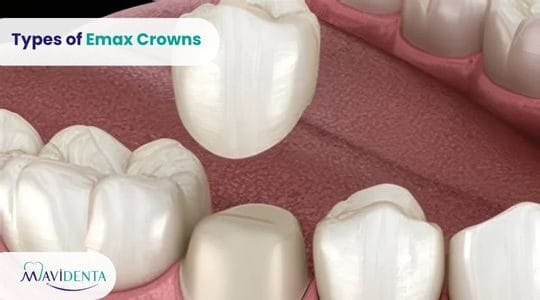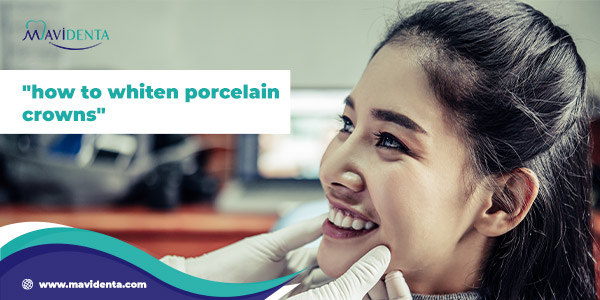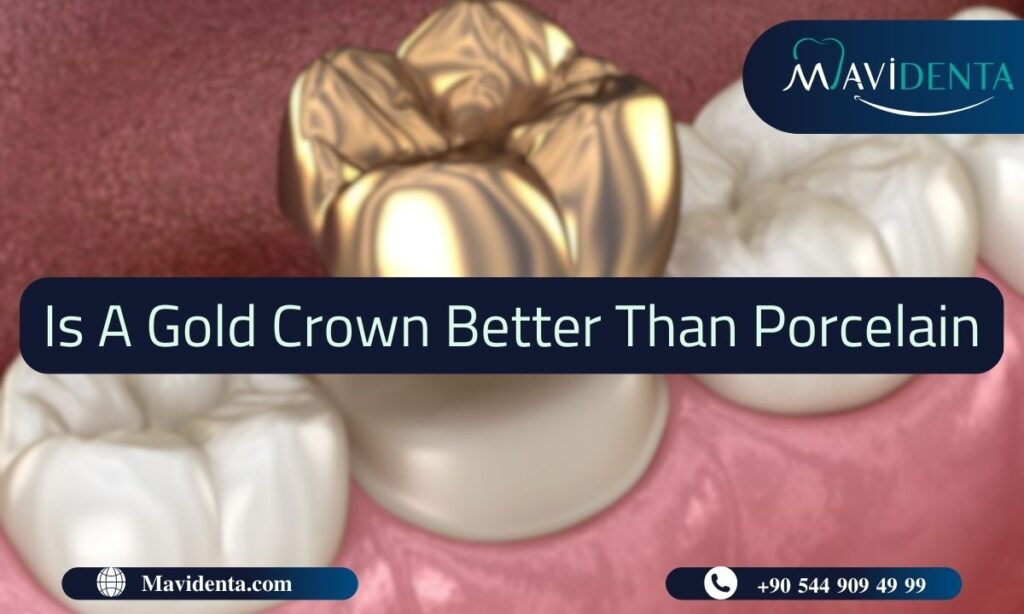When it comes to dental crowns, there are many different materials to choose from. Two of the most popular materials for dental crowns are ceramic and porcelain. But what is the difference between these two materials, and which one is right for you? In this article, we’ll explore the difference between ceramic and porcelain dental crowns and help you make an informed decision.
What is a Ceramic Crown?
A ceramic crown is a type of dental crown that is made from a ceramic material. Ceramic crowns are often used to restore front teeth because they have a more natural appearance than other materials. Ceramic crowns can be color-matched to your natural teeth, which makes them virtually indistinguishable from your natural teeth.
Which Crown Material is Right for You?
The right crown material for you will depend on a number of factors, including the location of the tooth that needs to be restored, the extent of the damage, and your personal preferences. Your dentist will be able to help you determine which crown material is right for you.
Difference Between Ceramic and Porcelain Dental Crowns:-
Ceramic and porcelain dental crowns are two common materials used in dental restorations. While they are both made of ceramic materials, there are some differences between the two.
Porcelain crowns are made of a type of ceramic that is fused to a metal core. This metal core provides additional strength and support to the crown. Porcelain crowns are known for their durability, natural appearance, and resistance to staining.
Ceramic crowns, on the other hand, are made entirely of a type of dental ceramic material. They do not have a metal core and are generally considered to be more aesthetically pleasing than porcelain crowns. However, ceramic crowns are generally not as strong as porcelain crowns and may be more prone to chipping or breaking.
Both porcelain and ceramic crowns can be matched to the color of your natural teeth, making them virtually indistinguishable from your natural teeth. Your dentist will help you choose the best material for your dental restoration based on your specific needs and preferences.
Read more: What is the difference between porcelain and ceramic veneers?
Difference Between Ceramic and Porcelain in Dentistry:-
When it comes to choosing between ceramic and porcelain dental crowns, there are a few key difference between ceramic and porcelain dental crowns to keep in mind.
Ceramic crowns are made from a type of porcelain that is fused to a metal base, while porcelain crowns are made entirely of porcelain. Porcelain is known for its strength and durability, making it a popular choice for dental crowns. Ceramic, on the other hand, is more translucent and can provide a more natural appearance. Ultimately, the choice between ceramic and porcelain will depend on a variety of factors, including the location of the tooth, the extent of the damage, and your personal preferences. Your dentist will be able to help you make the best decision for your individual needs.
Why Do You Need a Ceramic or Porcelain Crown?
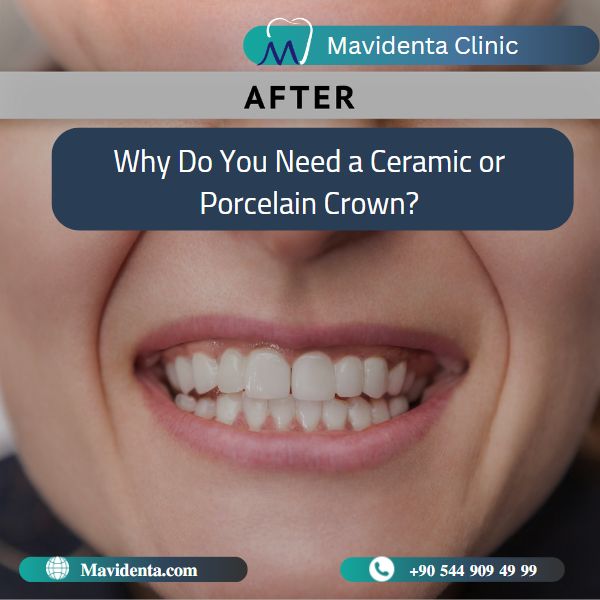
You may need a ceramic or porcelain crown if you have a tooth that is severely damaged or decayed. A crown can help to restore the tooth and prevent further damage. Crowns can also be used to cover teeth that are discolored or misshapen.
Factors to Consider When Choosing the Right Material for Your Crown:-
There are several factors to consider when choosing the right material for your crown. These include:
- Location of the tooth
- Extent of the damage
- Esthetic preferences
- Cost
Our dentist will be able to help you choose the right material for your crown based on these factors.
Read more: Are Porcelain Crowns Strong? Explained!
What is Better Porcelain Crown or Ceramic Crown?
Choosing between a porcelain crown and a ceramic crown depends on your individual needs and preferences.
1- Porcelain crowns: are generally considered to be stronger and more durable because they have a metal core for added support. They are also more resistant to staining, making them a good choice for teeth that are visible when you smile.
2- Ceramic crowns: on the other hand, are made entirely of a type of dental ceramic material and are generally considered to be more aesthetically pleasing because they can be made to closely match the color and translucency of your natural teeth. However, ceramic crowns may not be as strong as porcelain crowns and may be more prone to chipping or breaking.
Ultimately, your dentist will help you choose the best material for your dental crown based on your individual needs and preferences, as well as the location and function of the tooth that needs to be restored.
Whether a porcelain crown or a ceramic crown is better will depend on your individual needs. Porcelain crowns tend to be stronger than ceramic crowns, but they are also less esthetically pleasing. Ceramic crowns are more esthetically pleasing but tend to be more brittle.
Also check: Is a Gold Crown Better Than Porcelain Crown? Pros and Cons
Is Porcelain the Same as Ceramic Dental Crowns?
Porcelain is a type of ceramic material that is commonly used in dental crowns. However, not all ceramic dental crowns are made of porcelain.
Ceramic dental crowns can be made of different types of ceramic materials, including porcelain, zirconia, and lithium disilicate. Each material has its own unique properties and advantages, and the choice of material will depend on factors such as the location and function of the tooth that needs to be restored, as well as the patient’s individual needs and preferences.
Porcelain dental crowns are popular because they closely resemble natural teeth in color and translucency, and they are durable and long-lasting. However, other ceramic materials such as zirconia may be more suitable for certain situations where greater strength is needed.
It is important to consult with your dentist to determine the best type of dental crown for your individual needs.
Which is Cheaper Porcelain or Ceramic Crown?
The cost of a dental crown depends on several factors, such as the type of material used, the location of the tooth in the mouth, and the complexity of the procedure. In general, ceramic crowns are typically less expensive than porcelain crowns.
Ceramic crowns are made of a type of dental ceramic material and do not have a metal core, which makes them less expensive to produce than porcelain crowns. Porcelain crowns are made of a type of ceramic material that is fused to a metal core, which adds to the cost of the crown.
However, it is important to keep in mind that the cost of a dental crown should not be the only factor to consider when choosing a restoration. Your dentist will help you choose the best type of crown for your individual needs, taking into account factors such as durability, aesthetics, and function. In some cases, the added benefits of a porcelain crown may outweigh the extra cost.
What is the advantage of Ceramic Crown?
Ceramic dental crowns offer several advantages over other types of dental crowns. Some of the advantages of ceramic crowns include:
- Aesthetics: Ceramic crowns are highly aesthetic and can be matched to the color and translucency of your natural teeth, making them virtually indistinguishable from your natural teeth.
- Biocompatibility: Ceramic crowns are biocompatible, meaning they are unlikely to cause an allergic reaction or other adverse reactions in the body.
- Durability: While ceramic crowns may not be as strong as other materials, they are still highly durable and long-lasting with proper care and maintenance.
- No metal: Ceramic crowns do not contain any metal, which can be advantageous for patients who have metal allergies or sensitivities.
- Minimal removal of tooth structure: Ceramic crowns require less removal of the natural tooth structure compared to other types of crowns, which helps to preserve the health of the natural tooth.
- Good for anterior teeth: Ceramic crowns are an excellent choice for restoring anterior (front) teeth because of their highly aesthetic appearance.
Overall, ceramic dental crowns can provide a durable and highly aesthetic solution for restoring damaged or decayed teeth, while also preserving the natural tooth structure as much as possible.
Read more about the Zirconium Crowns vs. Veneers.
What is the Disadvantage of Ceramic Crown?
While ceramic dental crowns have many advantages, there are also some potential disadvantages to consider. These include:
- Reduced strength: Ceramic crowns may not be as strong as other materials, such as porcelain or metal, and may be more prone to chipping or breaking, especially if subjected to excessive force or trauma.
- Wear on opposing teeth: Ceramic crowns may cause more wear on the opposing teeth in the mouth, especially if the crown is not properly adjusted or aligned.
- Difficulty in placement: Ceramic crowns may be more difficult to place than other materials, which may require more skill and experience on the part of the dentist or dental technician.
- Cost: Ceramic crowns can be more expensive than other materials, such as metal or resin.
Types of Ceramic Crowns:-
There are several different types of ceramic crowns, including:
- Zirconia crowns.
- Lithium disilicate crowns
- Feldspathic porcelain crowns
It is important to discuss the potential advantages and disadvantages of ceramic dental crowns with your dentist to determine if they are the right choice for your individual needs. Your dentist can help you weigh the pros and cons and make an informed decision about the best type of crown for your specific situation.

Porcelain vs Ceramic Crown Cost:-
At Mavidenta, we understand that cost is an important consideration when it comes to choosing a dental crown. The cost of porcelain and ceramic crowns can vary depending on several factors, including the size of the crown, the complexity of the procedure, and the location of the tooth. Generally, porcelain crowns tend to be more expensive than ceramic crowns due to their durability and strength. However, the cost of a crown can also depend on the dental practice you choose.
We offer competitive pricing for both porcelain and ceramic crowns. To find out the exact cost of your crown, we recommend scheduling a consultation with one of our experienced dentists. During your consultation, we can evaluate your specific needs and provide you with an accurate quote for the cost of your crown. Additionally, we offer flexible payment options to help make your treatment as affordable as possible.
In conclusion, the difference between ceramic and porcelain dental crowns, will depend on your individual needs and preferences. Your dentist will be able to help you choose the best option for your situation. If you have any further questions or concerns, please don’t hesitate to contact us at Mavidenta.We are always here to help you maintain a healthy and beautiful smile.
FAQ
How long do ceramic or porcelain crowns last?
With proper care, ceramic or porcelain crowns can last for many years, often up to 15 years or more.
Are ceramic or porcelain crowns a good option for front teeth?
Yes, ceramic or porcelain crowns are often a good option for front teeth because they have a natural appearance and can be color-matched to your natural teeth.
Are there any risks or complications associated with getting a ceramic or porcelain crown?
As with any dental procedure, there is a risk of complications, such as sensitivity or discomfort. However, these risks are generally low, and your dentist will take steps to minimize them.

